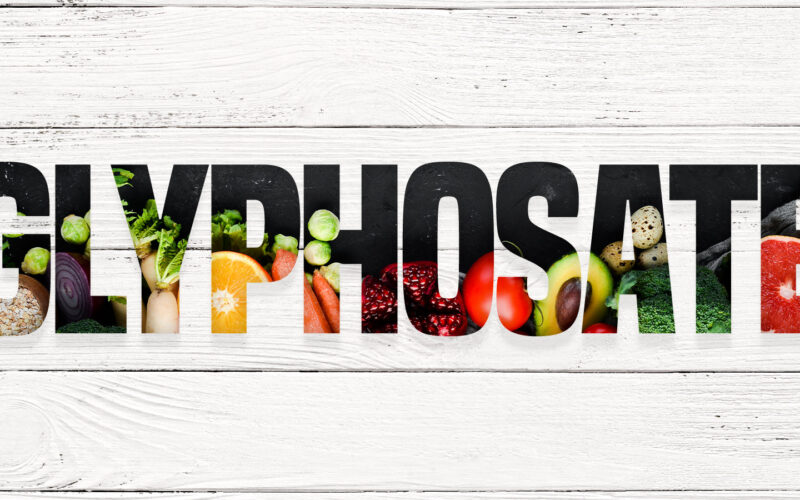Have you ever looked at the word “glyphosate” on a weed killer label and thought, “How on earth do I say this?” Many people are confused about glyphosate pronunciation, especially since it’s not a word you hear in everyday conversations. Some even spell it “glysophate” by mistake when they’re trying to figure it out.
If you’ve been wondering how to say it out loud, or you’ve been saying it wrong without knowing, this blog post is here to help. We’ll show you the correct glysophate pronunciation, explain what it means, and help you use it with confidence.
What Is Glyphosate (or Glyphosate)?
Before we break down the pronunciation, let’s quickly explain what glyphosate is. Glyphosate (sometimes misspelled as glyphosate) is a chemical found in many weed killers. It was first developed in the 1970s and is most commonly known through the brand Roundup.
It’s used in farming, gardening, landscaping, and even by homeowners to control unwanted weeds. Since it’s so common, knowing the right glyphosate pronunciation is useful whether you’re reading product labels or having conversations about pest control or food safety.
The Correct Glyphosate Pronunciation
Let’s get straight to the point. The correct glyphosate pronunciation is:
GLY-fo-sate
Here’s how to break it down:
- GLY – rhymes with “sky” or “high”
- fo – like the word “foe”
- sate – rhymes with “gate” or “late”
Put it all together: GLY-fo-sate
Say it slowly a few times to get used to it, and then practice saying it smoothly. Once you’ve got it, you’ll sound like a pro.
Common Mistakes in Glyphosate Pronunciation
Many people struggle with the word. Here are a few incorrect ways people might say it:
- Glee-fo-zate
- Gly-pho-sat-ee
- Glee-soph-ate
- Glycophate (a common spelling error)
While some of these sound close, they’re not quite right. Learning the correct glyphosate pronunciation helps you avoid confusion, especially when talking to others who work in agriculture or gardening.
Why the Right Glyphosate Pronunciation Matters
You might be thinking, “Does it matter how I say it?” Yes, it does—and here’s why:
1. It Helps You Sound Knowledgeable
When you say glysophate pronunciation correctly, you show that you’ve done your research. This matters if you’re working with professionals or sharing information online.
2. It Improves Communication
Clear pronunciation makes conversations easier, especially when talking about science or gardening.
3. It Prevents Confusion
Some mispronunciations sound like other words. Saying glyphosate the right way avoids misunderstandings, especially when safety or product use is involved.
When You Might Use the Word Glyphosate
Here are some times when knowing the correct glyphosate pronunciation might be helpful:
- Reading instructions on weed control products
- Talking to a landscaping expert
- Watching a documentary or news segment on farming
- Teaching students about chemicals in agriculture
- Writing or reading articles about safe gardening
Even if you don’t use the word often, knowing how to say it correctly is a smart move.
Practice Makes Perfect
If you’re still unsure about the glyphosate pronunciation, try this:
- Say it slowly three times: GLY-fo-sate
- Record yourself saying it and listen back
- Teach a friend how to say it, and it will help you remember
- Search for a pronunciation video online to hear it clearly
The more you practice, the easier it becomes.
A Quick Note on Spelling: Glyphosate vs. Glysophate
You might have seen the word spelled “glysophate” before. This is a common mistake, but the correct spelling is glyphosate. Still, many people search online for “glysophate pronunciation” because they’re not sure how it’s spelled or said. That’s why it’s important to understand both the correct pronunciation and the correct spelling.
So remember:
Correct spelling: glyphosate
Common search spelling: glysophate
Correct pronunciation: GLY-fo-sate
Final Thoughts
Now that you know the correct glyphosate pronunciation, you can feel more confident using the word in conversation or writing. Whether you’re a gardener, a teacher, a farmer, or just a curious reader, saying “glyphosate” correctly shows that you’re informed and prepared.
Next time you’re reading a label, asking about weed control, or explaining a product to someone else, you won’t be stuck or unsure. You’ll know exactly how to say it, and that’s something to feel good about.
